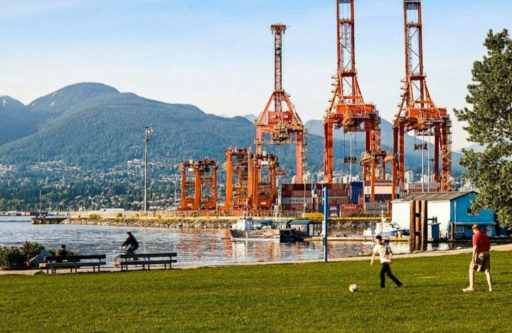Port of Vancouver
Port of Vancouver
Port of Vancouver

Vancouver Fraser Port Authority (VFPA) corporate vision is to be the world’s most sustainable port. A key component of this sustainable vision is taking climate action by “being a leader among ports in energy conservation and alternative energy to minimize greenhouse gas emissions.” Since presently the vast majority of energy use at the Port of Vancouver is fueled by diesel, and since the local Utility – British Columbia Hydro Corporation (BC Hydro) – provides a reliable source of low-carbon hydroelectricity to the port, electrification of suitable activities is a significant opportunity to make noteworthy reductions in GHG emissions from port activities.
The Roadmap to Electrification study was undertaken as a joint effort between VFPA and BC Hydro to assess the opportunities for electrification of port-related activities by 2030, and to identify strategies to support the transition towards electrification across the Port of Vancouver.
VFPA is a non-shareholder, financially self-sufficient entity, established by the Government of Canada in January 2008, pursuant to the Canada Marine Act. VFPA is accountable to the federal Minister of Transport. Outside of VFPA corporate operations (which accounted for less than 1% of GHG emissions at the Port of Vancouver in 2015), VFPA does not directly own or operate terminals, equipment, vessels, trucks or rail. However, both VFPA and BC Hydro can support the electrification of port-related activities through supportive actions, such as feasibility studies, pilot projects, and funding or partnership opportunities that accelerate electrification of equipment, vessels and vehicles.
For more information on the Port’s efforts towards low-carbon electrification please contact:
Dorota Kwasnik, Industrial Energy Manager
e-mail: Dorota.Kwasnik@portvancouver.com
Ronan Chester, Manager, Strategic Environmental Initiatives
e-mail: Ronan.Chester@portvancouver.com